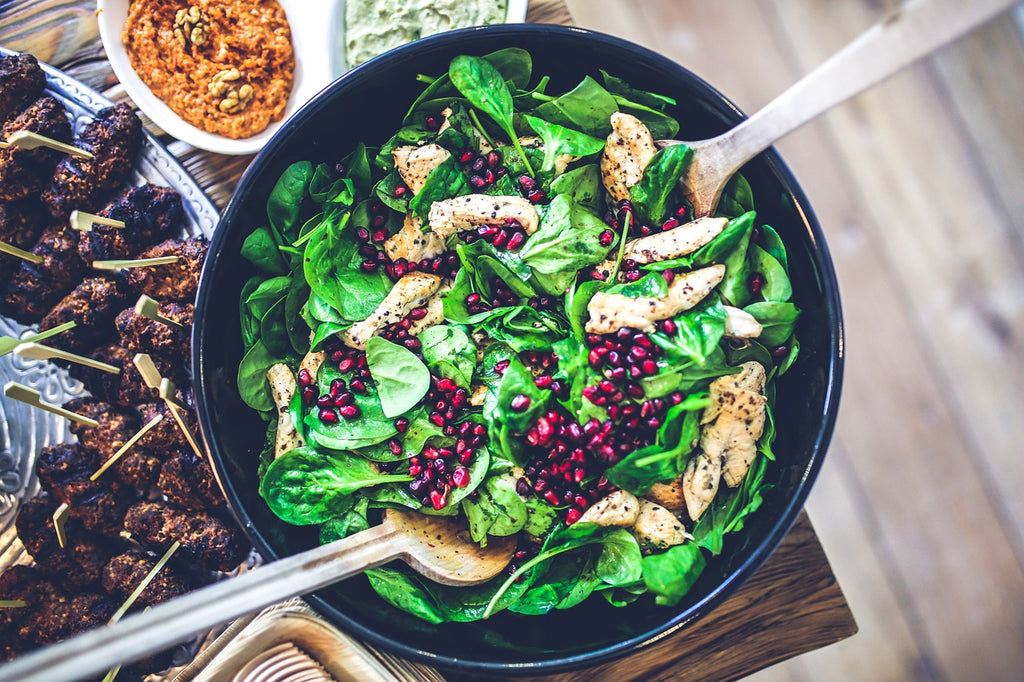Nutrition for Fitness: The Paleo Diet
Nutrition and fitness go hand in hand, so we're often asked about our opinions about the various approaches. We all know diets promoting rapid weight-loss are bad for us, but what about those that promise improved health, fat loss, lean muscle mass and performance gains? Over the next couple of months, we'll look at the most popular approaches within the world of functional fitness - starting with the Paleo Diet.

What is the Paleo Diet?
It's hard to go anywhere these days without bumping into someone who raves about the Paleo Diet - but is it worth all the hype? The approach is based upon the idea we should be eating similar foods to our hunter-gatherer ancestors. This includes things like meat, vegetables, nuts and seeds - and paleo cakes, because we know the cavemen would have been all about the almond flour!
According to the theory behind the approach, our bodies haven't evolved as quickly as our food manufacturing processes. After the agricultural revolution, bread was born - and we started getting fat. Paleo Diet enthusiasts claim most health problems - from obesity to cancer - can be traced back to our body's inability to process grains properly, which leads to inflammation and disease.
What Can I Eat?
The Paleo Diet is easy enough to follow - focus on the following food groups:
- Grass-fed meat, fish and eggs,
- Organic fruit and vegetables,
- Nuts and seeds
- Some oils (e.g. olive, avocado and coconut).
You should avoid any food that wouldn't have been around in the palaeolithic era, such as:
- Grains and legumes,
- Dairy,
- Refined sugar and processed foods,
- Artificial colours, flavours or preservatives,
- Refined vegetable oils.
What are the Benefits?
The majority of people who have tried the Paleo Diet will easily reel off a long list of benefits - so there must be something to it. The most common include:
- Sustainable fat loss and/or muscle gain,
- Improved digestion and gut health,
- Clear skin and rapid hair growth,
- Improved sleep,
- Healthier teeth,
- Fewer allergies (especially hayfever),
- Improved mental clarity and focus,
- More energy - which remains constant throughout the day,
- Stable appetite and reduction in cravings,
- Improved immune system and general feelings of well-being,
- Bacon.
Are There Any Negatives?
On the whole, this is a healthy approach to nutrition, but it's not perfect. You still need to be mindful of your nutrition choices, otherwise you may fall victim to some of the common mistakes people make when following the Paleo Diet.
When you make such a dramatic change to your diet, it's important to make sure you're getting enough from your food - especially if you're used to eating plenty of grains or processed foods. Replace them with healthy fats, paleo-friendly carbs, and plenty of vegetables.
This approach gets a lot of criticism for its questionable science. For starters, cavemen might not have been as healthy as we're led to believe. They had relatively short lifespans, and little is known about the illnesses and ailments they experienced, so why should we try to replicate their diet? If you want to find out more, check out this critique by the Sceptical Nutritionist.
The Paleo Diet is also attacked for its evangelistic approach to nutrition - and the obsessive nature of some of its followers. You know, the ones who judge you for bringing a post-workout sandwich into the box. When thinking about food, it's important to keep things in perspective. Think about the bigger picture: what are your goals, and how important are they?
It doesn't matter which nutrition approach you decide to follow, if you don't allow a degree of flexibility, it will impact other areas of your life. Life is all about balance. Don't be afraid to eat a pizza every now and again - and not just those "paleo" pizzas with the cauliflower crusts!

